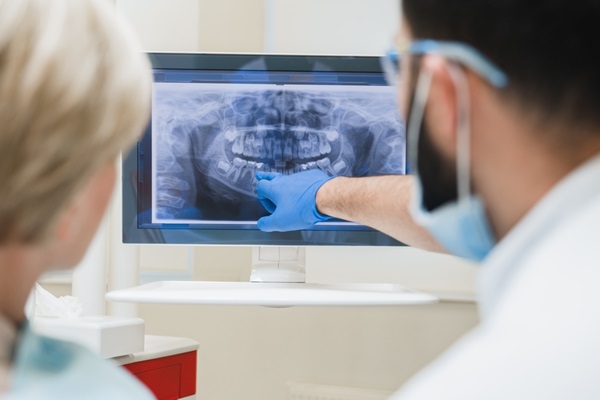Bone Grafting for When Your Jawbone Is Too Thin or Soft for Dental Implants

Even if a patient’s jawbone has deteriorated or is too soft to hold the post needed to secure a dental implant, implants may still be possible. Dental bone grafting can restore the jawbone to a state in which it can be primed for a dental implant. Learn more about this procedure to discover when and why patients may need it.
What are dental bone grafts?
Bone grafts in any part of the body are usually portions of bone that have been taken from one part of the body and grafted, or fused onto, another bone in a different location. If the patient’s bones are too weak, brittle, or thin even for a graft to occur, synthetic material may be used to mimic natural bone. Dental bone grafts can be sourced in the following ways:
- Autografts: This type of graft is taken from another part of the patient's body. It is most often sourced from a large bone, like the hip or femur, and it is preferable to all other types of grafts if it is available.
- Allografts: Another person, or a cadaver, may supply bone for this type of graft.
- Alloplasts: These grafts are composed of synthetic bone material such as calcium phosphate.
- Xenografts: These grafts are sourced from an animal like a cow or a pig.
Who may need a dental bone graft?
Otherwise healthy individuals who have missing teeth may be good candidates for dental bone grafts. Sometimes, especially in the case of gum disease, a patient needs a new tooth but, due to the disease, the jawbone has lost bone mass either in sections or as a whole. A soft jawbone is unable to hold the posts for implants, so patients in this position need to undergo a graft to provide a solid foundation for implanting a replacement tooth.
How is a dental bone graft completed?
During the bone grafting appointment, a portion of bone is taken from another area of the patient’s body (if the procedure involves an autograft) or it will be waiting for the patient in the dentist’s office. An incision is made in the gum line to place the new portion of the bone or synthetic bone. After placement, the patient’s gum is stitched up, and the mouth begins the healing process as the surrounding bone grows around the graft. The patient receives instructions for post-graft care and healing, which can take several months. Eventually, the jawbone is ready for the dental implant procedure.
Conclusion
The time and cost to complete a bone grafting, in the end, is well worth it. With implants, the patient is able to enjoy a boost in oral health, stronger teeth, and a renewed confidence in the resulting new smile. Patients who need implants but have been denied due to a soft jawbone or other issues should consult with a licensed dentist today to determine whether a dental bone graft is an appropriate solution.
Are you considering bone grafting in the Lee's Summit area? Get more information at https://spectrumsurgical.net.
Check out what others are saying about our services on Yelp: Read our Yelp reviews.
Recent Posts
Research shows that Botox™ appeals to both men and women. Many individuals want to battle the signs of aging. This common treatment helps them look years younger without going under the knife. Learning when to get Botox from your oral surgeon can help you prepare for treatment day.Jaw clenching or teeth grinding at night is…
Searching for the most knowledgeable and skilled oral surgeon in your area can be challenging. But if you find the right dental care provider, you can achieve the enhancements that you want or need. Finding the right provider will need a little effort. Here are some tips you must consider for choosing the oral surgeon…
A facelift can give you a more youthful appearance. Getting this procedure from an oral surgeon can even enhance your oral health. This dental care provider has the knowledge and experience to bring out the results that you want. Here are the main reasons to get your facelift from an oral surgeon.This dental professional is…
A facial surgeon can help you improve your appearance or correct medical conditions. A complete assessment must happen first before creating a custom-fit treatment plan. This healthcare professional aims to help you meet your cosmetic and health goals. Here are the common procedures you should consider from an experienced facial surgeon.This form of surgery can…


